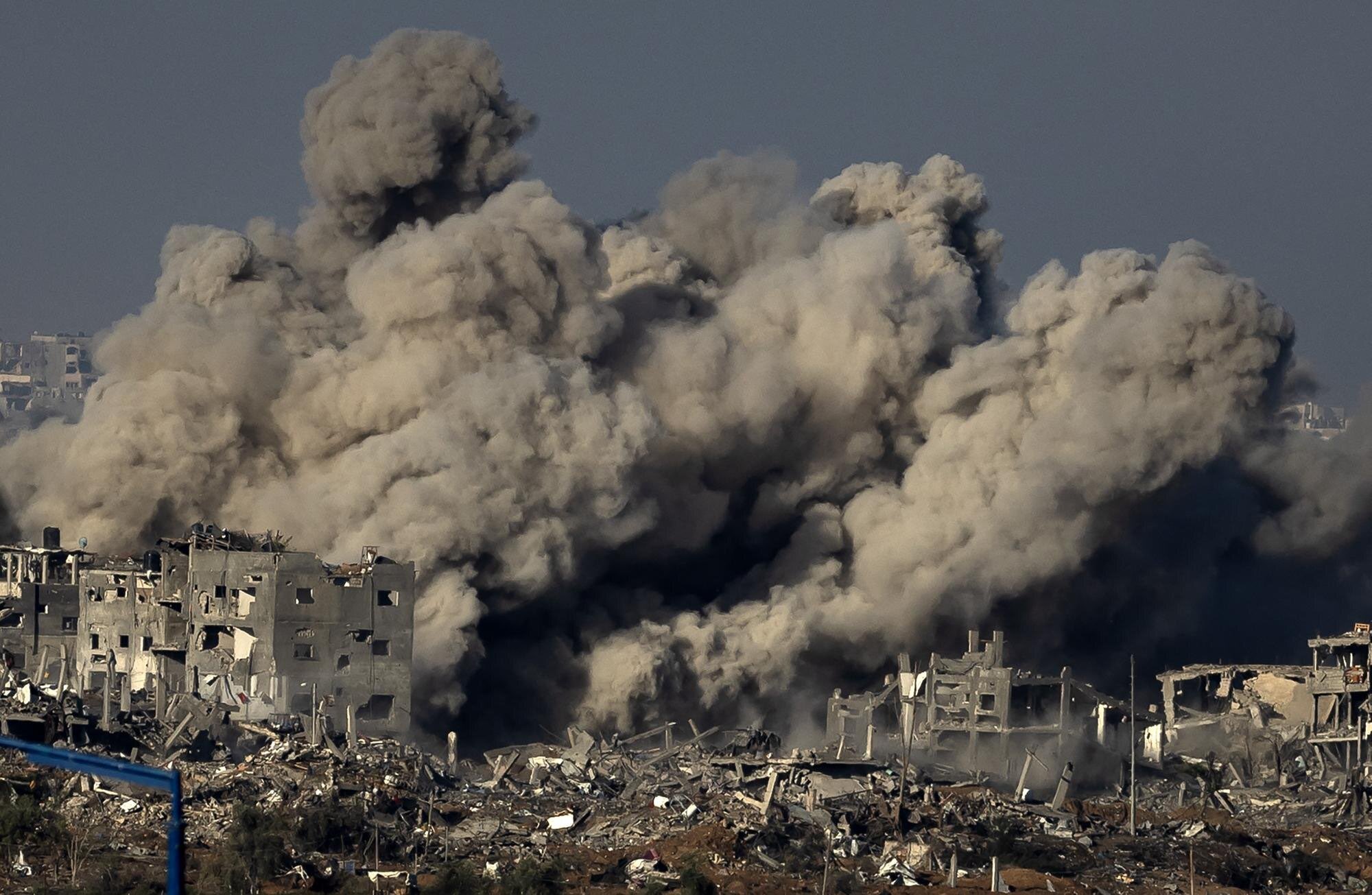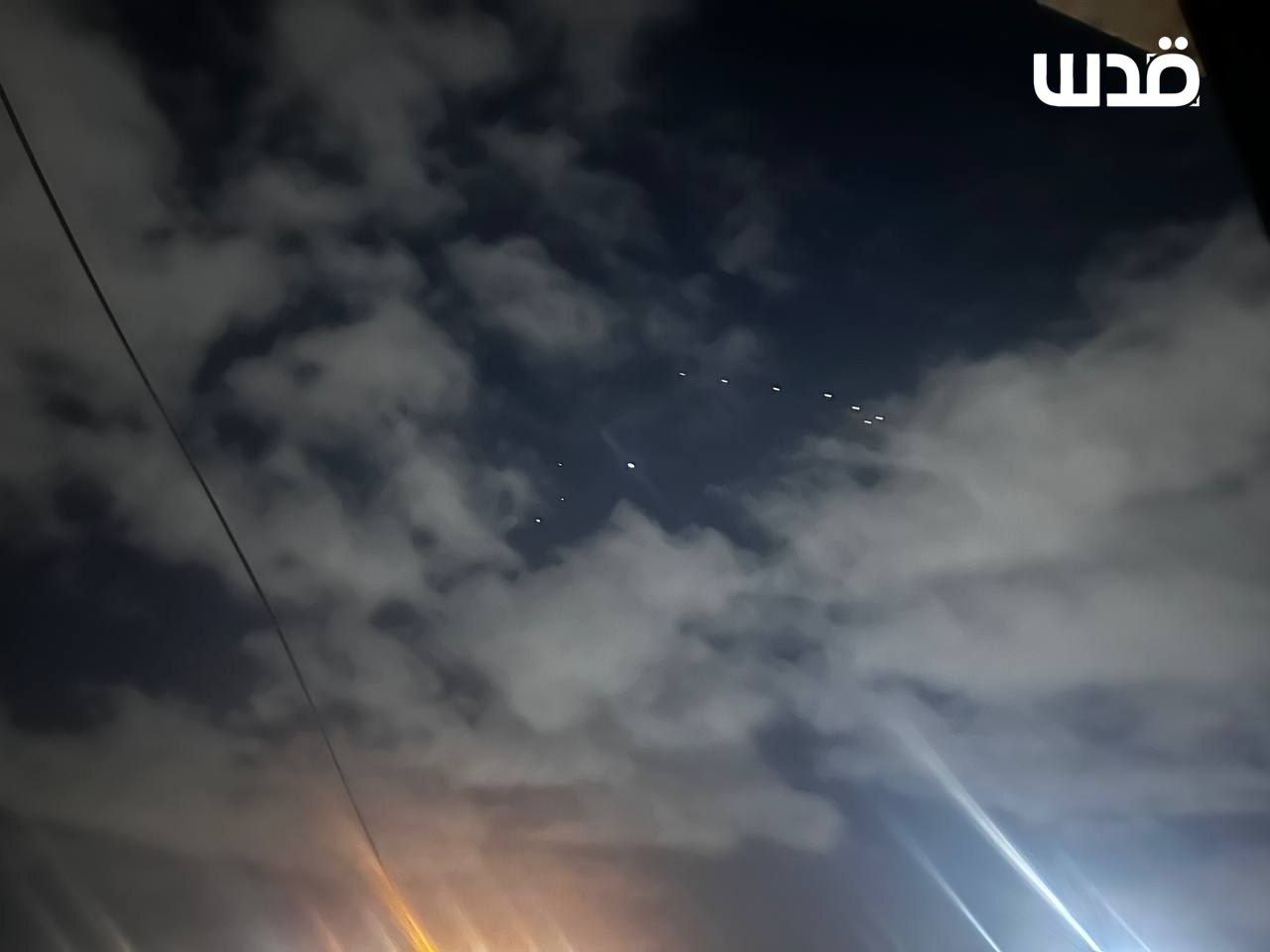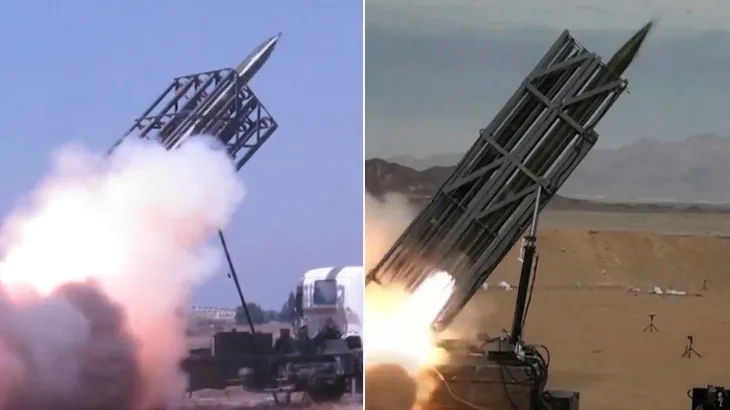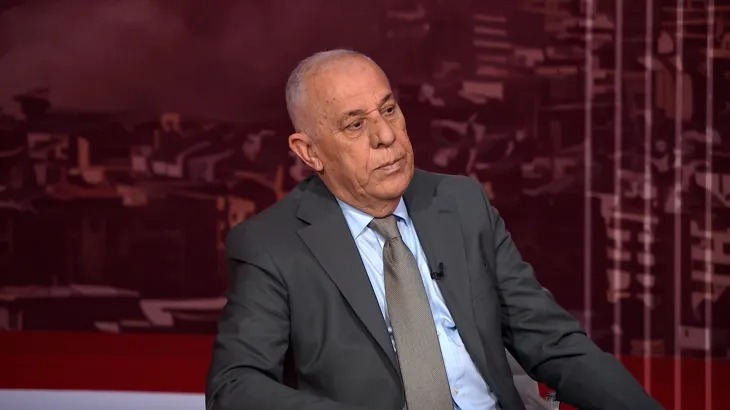Analysis – Israeli Army Can Only Move at Night
Military and strategic expert, Maj-Gen Fayez Al-Duwairi said the Israeli occupation army is not able to advance in northern Gaza Strip except at night, indicating this is creating new challenges for the Palestinian resistance.
Differences this time
Al-Duwairi explained the differences between the current Israeli military operation here, and its previous operations, highlighting the new tactics followed by the occupation army and the challenges posed to Palestinian resistance groups.
He pointed out while there are ongoing battles and heavy Israeli losses including the destruction of vehicles and the killing of their soldiers, he believes the occupation’s success in isolating the Jabalia camp from all four sides has created a different reality this time around.
Moving at night
But he stressed most of the occupation’s main advances take place at night, attributing this fact to the resistance’s lack of night vision weapons with infrared rays. He pointed out this allows the occupation forces to set up barricades and achieve additional progress, even at limited distances ranging between 50 and 70 meters.
The military expert added this situation has created a new problem for the resistance it has not been exposed to before, despite its success in inflicting heavy losses on the occupation forces.
He drew attention to the seriousness of the humanitarian situation, noting there are about 150,000 Palestinians trapped in an area of no more than two square kilometers, with Israeli tanks standing at the doors of shelters.
Human shields
Al-Duwairi believes it is as if the Israeli army is using civilians as human shields, making it difficult for resistance fighters to carry out their duties without risking harm to these civilians, considering this situation as one of the biggest challenges facing fighters, which they did not face in previous military incursions.
Commenting on the video shown by the Israeli army of the leader of the Islamic Resistance Movement (Hamas) Yahya Sinwar – which he said shows him with his family in a tunnel on the night of 7 October, 2023 – Al-Duwairi pointed out this video represents a “glorification of Sinwar and not condemnation of him.”
Not a 5-star hotel!
He explained the video shows the Hamas leader and the main planner of Operation Flood of Al-Aqsa living a difficult life inside the tunnels, not in a 5-star hotel, adding that he is the head of a family and is being directly targeted, and it is natural for him to seek to put his children in safety.
Al-Duwairi added the fact that Sinwar and his children lived for a year in the tunnels represents a sacrifice that must be appreciated, and he believed that the occupation’s attempt to use this video to condemn Sinwar may backfire, as he can be seen as a resistance leader who sacrifices his personal life for his cause.
Al-Duwairi believes that this video refutes the accusations directed at Sinwar and other Hamas leaders that they live a life of luxury, and that what appeared is that these leaders are not looking for a life of luxury, but seek to liberate the land, protect its honor, and are ready to die for the sake of God according to Al Jazeera.






 (@Life_Work_Peace)
(@Life_Work_Peace) 
 قراءة عسكرية مهمة لواقع القتال والتطورات الميدانية بين الجيش الإسرائيلي وحزب الله مع اللواء فايز الدويري والعميد إلياس حنا .
قراءة عسكرية مهمة لواقع القتال والتطورات الميدانية بين الجيش الإسرائيلي وحزب الله مع اللواء فايز الدويري والعميد إلياس حنا . ولا غربية
ولا غربية  (@Iraq213890)
(@Iraq213890) 




